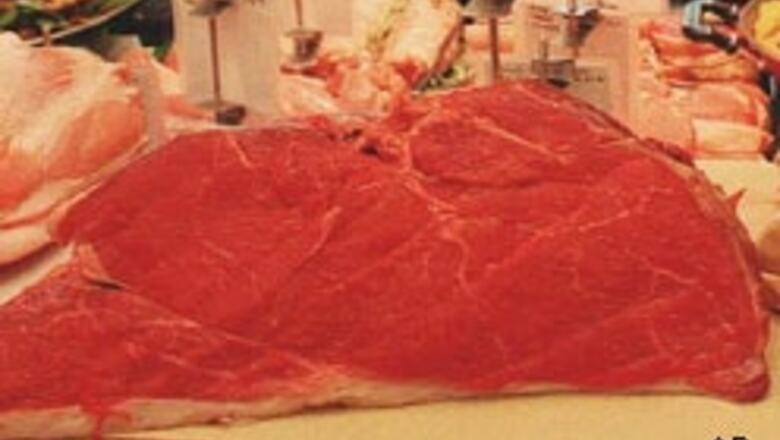
views
Chicago: Younger women who eat more red meat may be at higher risk of a certain kind of breast cancer, perhaps because of hormonal residues in beef cattle and other factors, according to a study published on Monday.
Data from a multiyear study involving the health histories of more than 90,000 US nurses show that "in this population of relatively young, premenopausal women, red meat intake was associated with a higher risk of hormone receptor-positive breast cancer," said the study from Brigham and Women's Hospital and Harvard Medical School in Boston.
Hormone receptor-positive tumors are those that carry certain proteins to which hormones, in this case estrogen and progesterone, bind, helping them grow.
Those kinds of tumors have been on the increase in the United States, especially among middle-aged women.
"Given that most of the risk factors for breast cancer are not easily modifiable, these findings have potential public health implications in preventing breast cancer and should be evaluated further," concluded the report published in the Archives of Internal Medicine
The researchers said they had found that women who ate more than one and one-half servings of red meat per day had almost double the risk of hormone receptor-positive breast cancer compared with those who ate three or fewer servings per week.
The study began in 1989 when the women were surveyed on eating and other habits. Those in the red meat study were followed from 1991 through 2003.
Only women who had not gone through menopause and were cancer-free were included in the analysis.
There are known to be cancer-causing compounds in cooked or processed red meat that increase breast tumors in laboratory animals and have been suspected of causing breast cancer in humans, the report said.
In addition "hormone treatment of beef cattle for growth promotion, which is banned in European countries but not in the United States, has been of concern," the report said.
"Although long-term health effects of hormone residues in beef have not been investigated, theoretically they may preferentially affect hormone receptor-positive tumors," it added.
Other potential factors involved with red meat include animal fat in general and a form of iron in meat that has been shown to play a role in the development of such tumors.




















Comments
0 comment